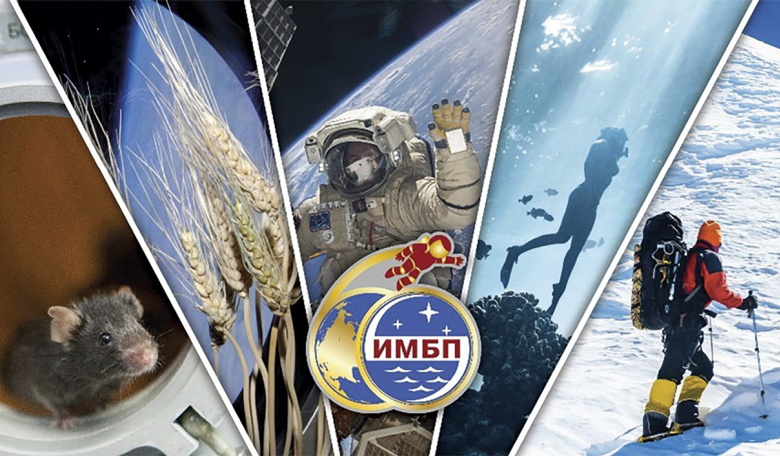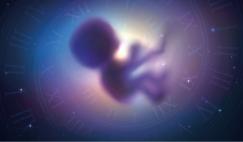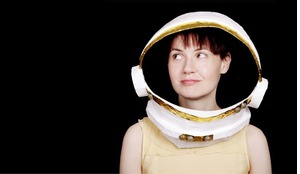The Institute of Biomedical Problems (IBMP) of the Russian Academy of Sciences, a world leader in the field of medical support of human life and professional activity in extreme environmental conditions celebrates its 60th anniversary on 28 October 2023. IBMP is the leading Russian institution for biomedical support of human spaceflight and plays an important role in research in the field of life sciences, as well as in the development of methods and means of maintaining human health and performance under extreme conditions.
The IBMP was established in 1963 as the Soviet Union’s leading institution on the problems of Space Biology and Medicine on the initiative of the Designer General, Sergei Korolev and the President of the Academy of Sciences, Mstislav Keldysh, with the active involvement of the Deputy Minister of Health, Avetik I Burnazyan.
The core of the Institute was formed by the Ministry of Defence’s laboratories of the State Research Testing Institute of Aviation and Space Medicine of the Ministry of Health’s Institute of Biophysics.
At the same time, IBMP was being reinforced with qualified experts from scientific institutions of the nation’s Academy of Sciences and the Academy of Medical Sciences, the Ministry of Health and other institutions, as well as with young professionals from higher educational institutions and space industry enterprises. The country’s best scientists joined efforts to ensure the safety of humans in outer space.
Over six decades, IBMP has been headed by leading scientists in the fields of physiology, space biology and medicine: Alexander Lebedinsky, Vasily V Parin, Oleg Gazenko, Anatoly Grigoriev, Igor Ushakov. They made a significant contribution to the development of both national and world cosmonautics. Since December 2015, Oleg Orlov has been the Director of the Institute.
The main objective of the Institute has been to perform advanced research aimed at studying the impact of extreme space environment factors on humans and other bio-objects. Such studies help to substantiate ways of preventing pathological body changes, to create an artificial habitat that would ensure professional activity of cosmonauts without harming their health and adequate return to the Earth gravity conditions.
More than 150 human spaceflights have been carried out with the support of IBMP scientists
Together with specialised medical institutions and space industry entities, the Institute has developed a unique system of selection, examination and training of civilian agencies’ cosmonauts, including ‘space tourists’. IBMP is involved in monitoring cosmonauts’ medical condition at the re-entry vehicle landing site, as well as in the programme of therapeutic and recreational activities during the post-flight readjustment period.
The Institute’s staff perform round-the-clock monitoring of crew health and performance, regulating labour and rest, providing psychological support to crews, monitoring microbiological and radiation conditions, and providing medical support for extravehicular activities. Staff have made a great contribution to the development of scientific and methodological basis for space flight radiation safety.
Based on the results of fundamental and applied research, IBMP experts - in collaboration with related institutions and organisations of the Russian Space Agency and the Academy of Sciences - have scientifically substantiated, developed and put into practice a system of spaceflight medical and sanitary-hygienic support.
This system was used effectively in the short and long-term human spaceflights on the Vostok and Soyuz spacecraft, Salyut and Mir orbital stations, and has been taken as a basis and is being further developed as part of the work aboard the International Space Station (ISS). More than 150 human spaceflights have been carried out with the support of IBMP scientists.
Crew physicians play an important role in the implementation and improvement of the spaceflight medical support system, and in the testing of means and methods of medical assistance in extreme conditions. Realising this as early as in 1972, Institute experts created a group of cosmonaut candidates, which was transformed into the IBMP cosmonaut corps in 1978.
Five IBMP employees - the world’s first crew physician Boris Egorov; crew physician-researcher Valery Polyakov, who performed a record-breaking 438-day orbital flight; crew physician-researcher Boris Morukov; pilot cosmonaut, crew physician Oleg Kotov; and pilot cosmonaut, crew biologist Sergei Ryazansky - have all performed spaceflights.
Space biomedical research
A unique experience of joint work was gained during the joint Russian-American flight of the Soyuz and Apollo spacecraft crews in 1975
For many years, IBMP has played a leading role in creating and implementing the national scientific programme of biomedical and biotechnological research on board human spacecraft. The Institute’s experts coordinate the work of various organisations and institutions in carrying out scientific research and experiments on board space stations.
The Institute’s implementation of long-term medical and biological programmes has made it possible to gain a deeper understanding of the regular patterns of body adjustment to the effects of space flight factors and to make significant progress in understanding a number of fundamental problems of gravitational physiology and biology.
The development of human cosmonautics could not be accomplished without animal research. The Institute successfully implemented a series of studies on specialised biological satellites of the Cosmos, Bion and Photon series.
On 22 February 1966, the launch of the artificial satellite Cosmos-110 with dogs Veterok and Ugolek onboard, was carried out with a pre-1970s record 22-day flight duration.
For the first time this convincingly demonstrated the necessity of developing and using means and methods of preventing the adverse effects of prolonged zero gravity during human spaceflight. In general, biological studies were a significant contribution to a deeper understanding of the bodily response to the effects of spaceflight and outer space factors.
Ground-based research
In addition to flight research, IBMP implements medical and biological programmes aimed at studying the effects of certain spaceflight factors on the human body in ground-based laboratory bench and field experiments. The data obtained through this research has allowed the Institute’s experts to successfully test technologies that reduce space mission medical and technical risks; to develop methods for increasing the body’s reserve capabilities and stress resistance; and to create special onboard means and methods of medical assistance at all stages of space flight, including extravehicular activities.
In 1967/68, a 365-day medical and technical experiment ‘A Year in an Earth Starship’ was performed at IBMP. For the first time in world practice, the possibility of ensuring long-term human life activity in a confined space of limited size under conditions of atmospheric regeneration and reproduction of water and oxygen from end products of the vital activity was confirmed.
In 1970, a unique medical and technical ground-based experimental complex was created, based on Sergei Korolev’s drawings, simulating the operation of a heavy interplanetary spacecraft and the actions of cosmonauts on the surface of a planet. Short- and long-term isolation experiments were performed to test promising life support systems, to assess the performance of cosmonauts during complex dynamic operations and delve into small group psychology.
New modelling methods were being introduced, including ‘dry’ immersion and anti-orthostatic hypokinesia. The maximum duration of the dry immersion experiment was 56 days.
Then, in 1987-1988, unique experiments were conducted under conditions of 370 days of anti-orthostatic hypokinesia with male participants and 120 days with female participants to study the long-term effects of simulated microgravity on the human body and to develop means of their prevention for long spaceflights. In 2009-2011, a unique international experiment modelling a human spaceflight to Mars was performed on the premises of the IBMP ground-based experimental complex.
SIRIUS project
During 60 years of fruitful work, IBMP RAS has made a significant contribution to the development of new fields of knowledge
Since 2017, IBMP has been implementing a large-scale international project, SIRIUS (Scientific International Research in Unique terrestrial Station), which aims to comprehensively study the medical, biological and psychological problems associated with human isolation and space limitation during simulated long-term space missions beyond Earth’s orbit.
Currently, the Institute’s scientists are primarily focused on medical and biological research related to the practical exploration of near-Earth orbits by cosmonauts, as well as human expeditions to the Moon, Mars and other Solar System bodies.
Extreme environments
Major efforts are being undertaken by IMBP in the field of management of the functional state of a person under conditions of altered environment and in extreme living conditions in various climatogeographical zones. The institute’s experts took part in unique medical and physiological research in the Soviet and Russian Antarctic expeditions to Vostok station, in scientific and sports expeditions of Komsomolskaya Pravda to the North Pole, the ‘Man and Desert’ 550 km-long journey through the vast deserts of Kyzylkum and Karakum, and in preparations for the first Soviet Himalayan scientific expedition to the world’s highest peak, Everest. Yuri Senkevich, an Institute scientist, took part in the international expeditions of Thor Heyerdahl on the papyrus reed boats Ra and Ra-2 and later aboard the Tigris. And in September 2012, the Heat experiment was to study the problem of the impact of climate change on human health.
Much attention is paid to the problems of hyperbaric physiology and diving medicine. In 1986-1987 on the basis of the southern branch of the Research Institute of Oceanology, named after oceanographer and hydrobiologist Pyotr Shirshov, simulated dives of aquanauts in an oxygen-helium environment were carried out to a ‘depth’ of up to 450 m, and a unique experiment with a simulated descent of a living body to a depth of 1900 m in a hydrogen-oxygen environment was performed as part of the deep diving research efforts.
In 2001, the country’s first department of occupational pathology of divers and caisson workers was established on the basis of the IBMP Department of Barophysiology and Diving Medicine and Clinical Hospital No. 119 of the Central Medical Sanitary Department.
Studies in the field of basic sciences performed by IBMP scientists served as a basis for the preventive means created to increase the duration of spaceflights; prolonged human stay in extreme environment in different climatogeographical zones and ocean depths.
These studies allowed the concepts of physiological norms to be revealed in much more detail, to detect more fully the reserve capabilities of a human being, to take part in medical support and training of elite athletes and to offer a number of innovative developments for practical health care.
For instance, the following devices have been successfully introduced into clinical practice in collaboration with the country’s leading medical institutions: a device for mechanical stimulation of foot support zones to correct motor disorders in patients with acute cerebral circulatory disorders and to rehabilitate patients on bed rest; the Regent suit for the treatment and rehabilitation of patients with ischemic stroke and parkinsonism; osteoporosis and metabolic osteopathies’ diagnostic, treatment and prevention methods; methods of treatment of cardiorespiratory diseases using heated oxygen-helium mixtures; methods of managing the functional state and increasing the physical performance of athletes, etc.
International cooperation
Currently, the Institute’s scientists are primarily focused on medical and biological research related to the practical exploration of near-Earth orbits by cosmonauts
The institute carries out extensive international scientific and technical collaboration with space agencies, research centres, universities, industrial organisations and commercial firms from more than 50 countries.
In 1967, the first meeting of space biology and medicine experts from socialist countries was held in Moscow, which laid the foundation for multilateral planned research within the framework of the Soviet Interkosmos space programme. IBMP staff took an active part in international medical and biological research on the Salyut-6, Salyut-7 and Mir Earth-orbiting space stations involving experts and cosmonaut-researchers from Czechoslovakia, Poland, East Germany, Bulgaria, Hungary, Vietnam, Cuba, Mongolia and Romania, as well as France, India, Syria and Afghanistan.
On 27 October 1970, the first meeting of Soviet and French scientists and specialists was held in Yerevan, Armenia, laying the foundation for many years of cooperation on the Cosmonaut, Aragats, Antares, Altair, Cassiopeia, Pegasus, Perseus and other scientific programmes. The Soviet-American joint working group established in 1971 to coordinate work in various areas of space biology and medicine, laid the foundation for many years of cooperation under the Mir-NASA and Mir-Shuttle programmes, which later became the basis for research and experiments on the ISS, including as part of multilateral collaboration.
A unique experience of joint work was gained during the joint Russian-American flight of the Soyuz and Apollo spacecraft crews in 1975. In the course of the long-term missions on the Mir station, joint research programmes were also successfully completed with Austria, Austromir-91, and with the European Space Agency (ESA), Euromir-95.
Currently, within the framework of the Intergovernmental Agreement on the ISS, IBMP experts play a key role in developing health and habitat standards for the station, participate in regulating various aspects of medical operations and also carry out practical implementation of joint research programmes.
Space medicine and biology bilateral working groups established jointly with foreign partners are a flexible tool for effective and mutually beneficial scientific and technical collaboration. The Institute’s scientists work under contracts with ESA, JAXA (Japan), CNES (France), CSA (Canada), and the space agencies of Italy, the Republic of Korea and Malaysia, with firms and organisations of Germany, the USA, Switzerland, France, China, Japan and many other countries.
Educational programmes
The Institute is strongly focused on educational and outreach programmes in order to ensure the continuity of generations
The Institute is strongly focused on educational and outreach programmes, ensuring the continuity of generations and drawing out young people’s interest in cosmonautics. IBMP works continuously on the preservation of its historical heritage and popularisation of scientific knowledge.
The collection of the Museum of Space Biology and Medicine contains unique exhibits: equipment and devices for onboard and ground experiments, personal archives of prominent scientists, historical documents, photographs and posters. The V V Parin Memorial Study-Museum was included in the museum list of the Russian Academy of Sciences in 2002. Its exposition reveals the life path and scientific activity of an outstanding physiologist and Academy member.
The museum exhibits books, souvenirs, personal belongings, authentic letters and manuscripts, and recreates the home office of one of the founders of space biology and medicine, Vasili Parin. A study-museum of the Academy member Oleg Gazenko has also been set up at the Institute. Tours are arranged for schoolchildren, students, veterans, and representatives of the scientific circles of Russia and other countries.
For many years the Institute has been participating in theme-specific awareness-building, educational and commercial exhibitions in Russia and abroad. The Institute’s expositions were presented at Russian national exhibitions in Spain, the Netherlands, Germany, China, Japan, India and France; and at exhibitions of high technology innovations in Russia, Switzerland, Belgium, France, Germany and the Republic of Korea. The Institute’s achievements have been repeatedly recognised with Grand Prix, gold, silver and bronze medals and diplomas.
Knowledge legacy
During 60 years of fruitful work, IBMP RAS has made a significant contribution to the development of new fields of knowledge - space medicine and biology, gravitational biology and physiology.
In collaboration with academic, medical, educational and technical organisations of various agencies and with broad international collaboration, the challenges necessary for human space exploration in medicine and related fields (biology, physiology, psychophysiology, habitability problems and creation of life support systems, radiation safety, etc) have been successfully resolved and prerequisites for human exploration of deep space and implementation of plans for interplanetary flights and establishment of on-planet bases have been created.
About the authors
Oleg I Orlov, Dr.Sci. (Med.), M.S., MBA is a Full Member of the Russian Academy of Sciences (RAS) and of the International Academy of Astronautics (IAA), and is a Director of the Institute of Biomedical Problems of the Russian Academy of Sciences (IBMP RAS), Moscow, Russia.
Mark S Belakovskiy has a PhD in Medicine and is a Full Member of the International Academy of Astronautics (IAA) and a Head of Department at the Institute of Biomedical Problems of the Russian Academy of Sciences (IBMP RAS), Moscow, Russia.
Anna R Kussmaul has a PhD in Biology and is a Full Member of the International Academy of Astronautics and a Deputy Head of Department/Senior Researcher at the Institute of Biomedical Problems of the Russian Academy of Sciences (IBMP RAS), Moscow, Russia.














